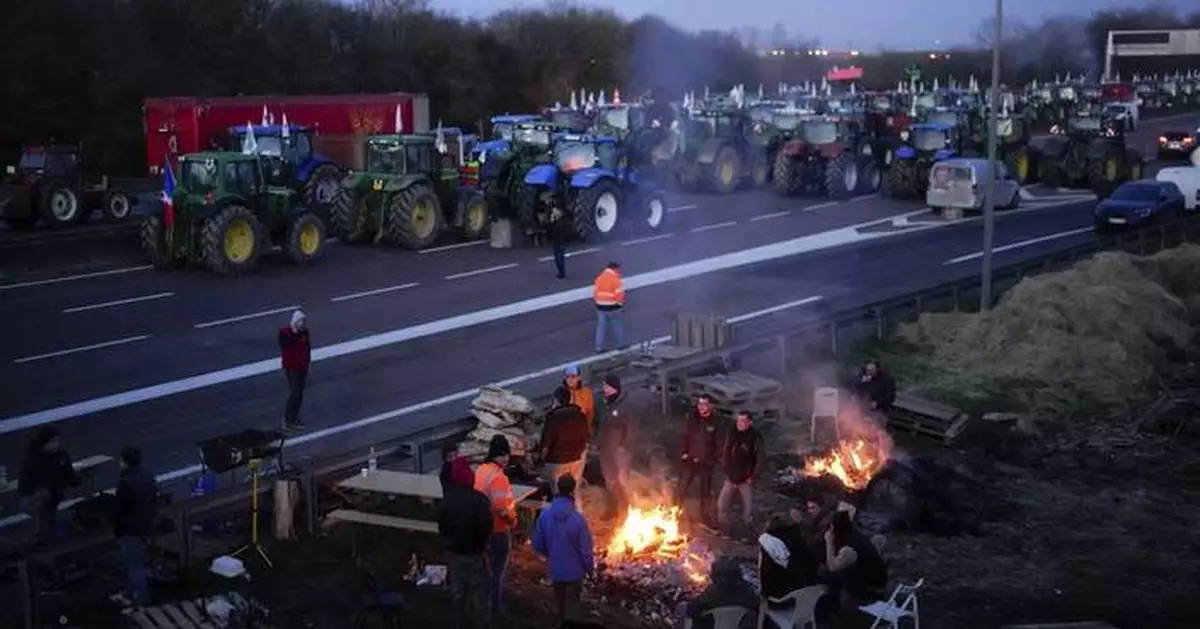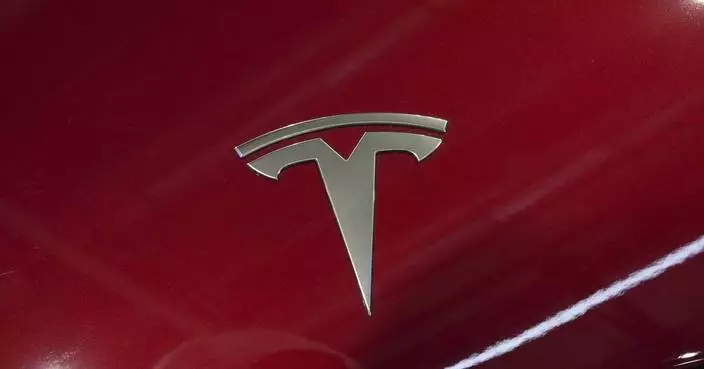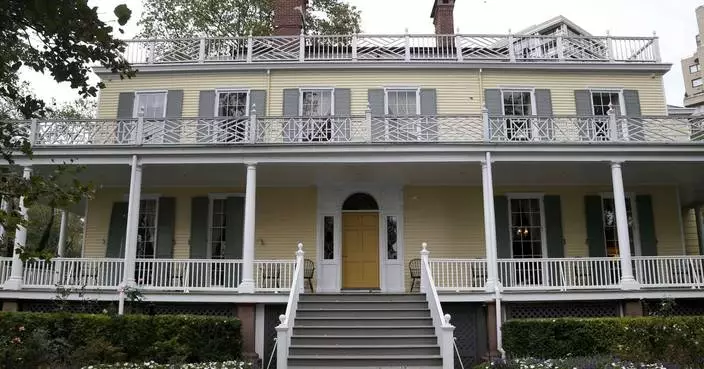PARIS (AP) — French farmers protested Tuesday against a trade deal that would increase agricultural imports from South America, saying it hurt their livelihoods.
The European Union and the Mercosur trade bloc, composed of Brazil, Argentina, Paraguay, Uruguay and Bolivia, reached an initial agreement in 2019, but negotiations stumbled due to opposition from farmers, and some European governments, leading to sweeping rallies where they particularly expressed worry about the use of pesticides in South American produce.
Tuesday's protest in Aurillac, in southern France, was the start of a fresh wave expected to spread among the European agricultural community amid concern that the deal could be finalized at the G20 summit in Brazil on Nov. 18-19 despite the French minister of agriculture, Annie Genevard, saying it was “highly unlikely."
A group of more than 600 French lawmakers also published an open letter in Le Monde, telling the EU Commission President Ursula von der Leyen that the conditions for adopting an agreement with the Mercosur bloc “have not been met."
Last week, French protesters blocked the state building in the western commune of Niort, while on Monday, the Copa-Cogeca European farmers’ group sent a letter to von der Leyen, urging her to reject the Mercosur deal and adopt “a coherent trade policy”
Meanwhile, France's three biggest farming unions have vowed action: The FNSEA, France’s largest, has called for nationwide protests once the winter sowing season ends in mid-November. Coordination Rurale has promised “an agricultural revolt” starting on Nov. 19 in Auch and Agen, two cities in the Southwest of France, while the Confédération Paysanne, the third-largest union, known for its anti-globalization stance, is also planning its move against “free trade agreements.”
Farmers in Belgium have also called for demonstrations close to the EU headquarters in Brussels on Wednesday.
European farmers' apprehensions stem from what they say are the too-strict EU environmental regulations they follow while the Mercosur deal could flood the market with imports from South America which are produced under lower environmental and labor standards, according to Véronique Le Floc’h, the president of Coordination Rurale, France’s second-largest farmers’ union.
“The anger hasn’t gone away. It’s still there, and, in fact, our worries have grown,” said Le Floc'h whose organization has been linked to France's far-right party National Rally. “If the Mercosur agreement is signed, it will spell the end of our agriculture,” she said.
Genevard, the agriculture minister, reiterated the government’s opposition to the deal on Tuesday. In an interview with TF1, she said: “We don’t want this agreement because it’s harmful. It will bring in products, including substances banned in Europe, at the cost of deforestation. It will unfairly compete with our domestic production.”
But Le Floc’h was not convinced.
“When the minister says the agreement won’t be signed, she’s either naive or thinks we are,” she said. “Why should we believe her when so many countries are in favor of it?”
In March, French President Emmanuel Macron called the deal “terrible” and “outdated." Negotiations began on June 28, 1999, but have taken a long, torturous path since.
Macron opposes any agreement as long as South American producers fail to adhere to the same environmental and health standards as Europeans.
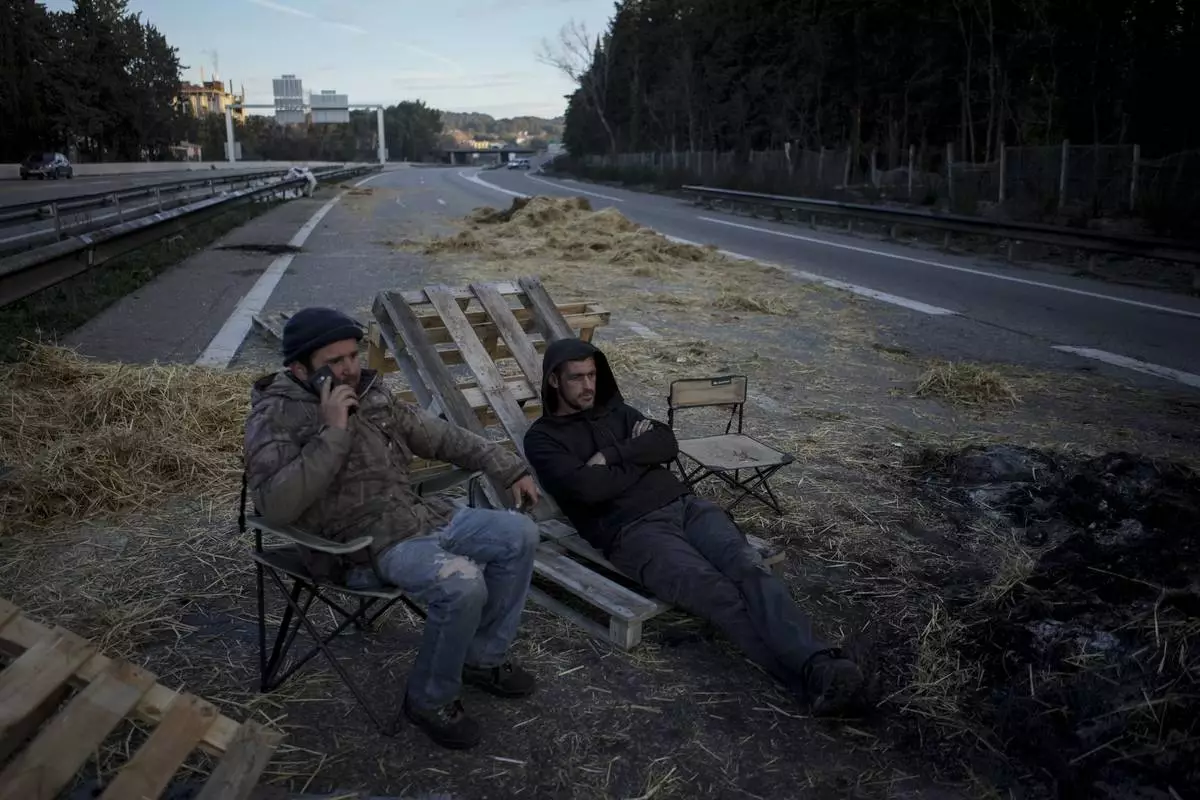
FILE- Farmers sit on a highway after spending the night at a barricade in Aix-en-Provence, southern France, Tuesday, Jan. 30, 2024. (AP Photo/Daniel Cole, File)
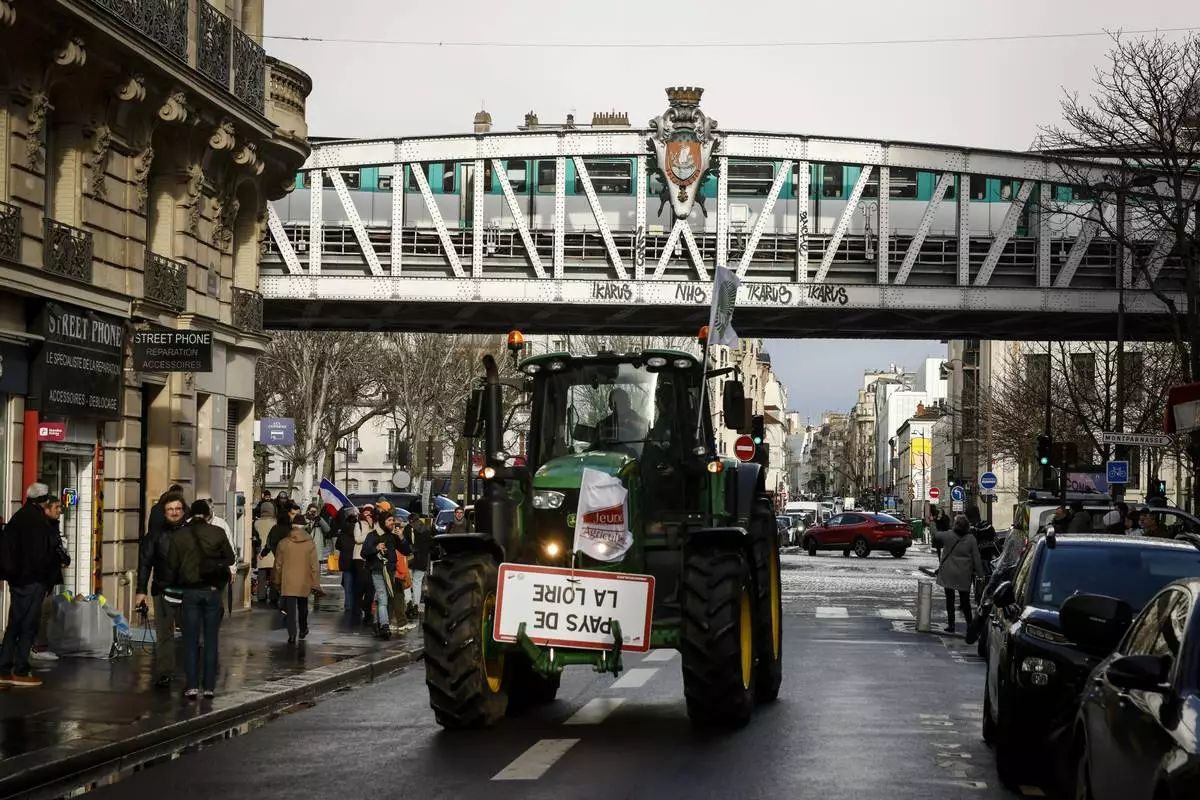
FILE- A farmer drives his tractor during a protest, Friday, Feb. 23, 2024 in Paris. (AP Photo/Thomas Padilla, File)

FILE- Gendarmes with armored vehicles face farmers and their tractors blocking a highway, Wednesday, Jan. 31, 2024 in Chilly-Mazarin, south of Paris. (AP Photo/Christophe Ena, File)
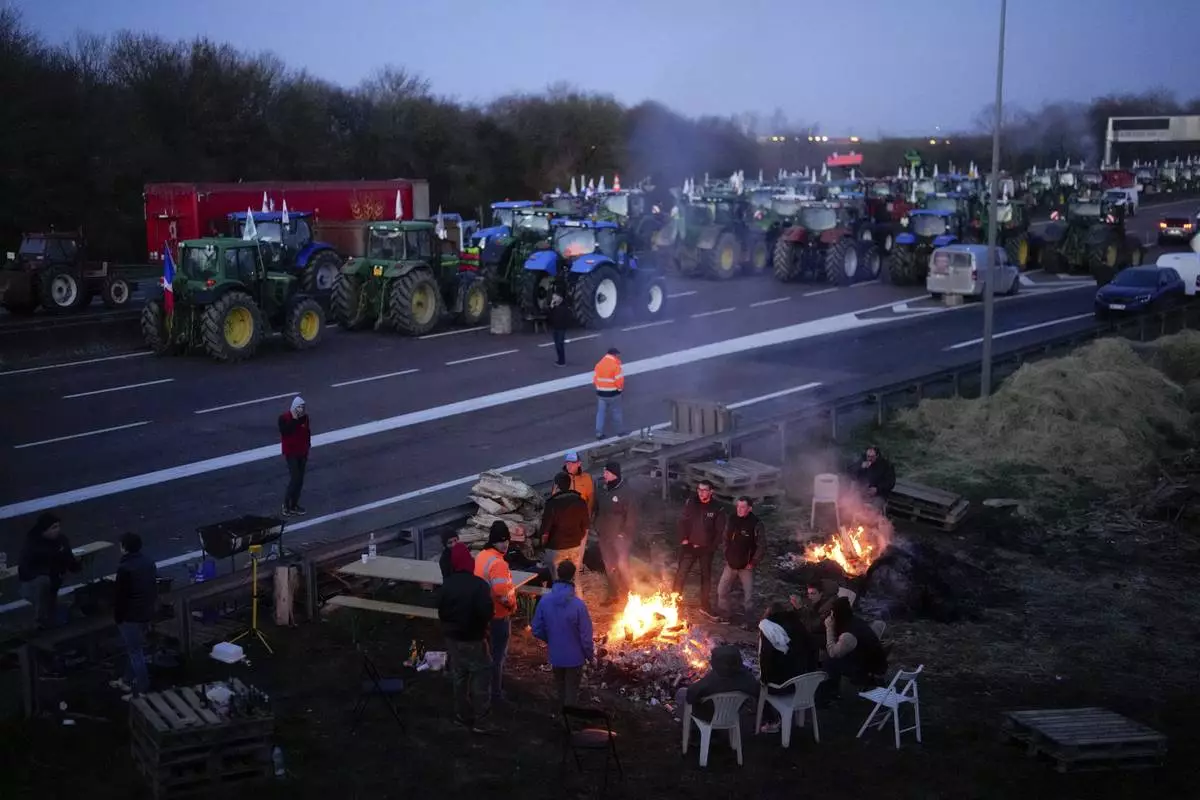
FILE- Farmers warm themselves around a bonfire as they block a highway with their tractors in Ourdy, south of Paris, Wednesday, Jan. 31, 2024. (AP Photo/Thibault Camus, File)
CETINJE, Montenegro (AP) — Shock and dismay prevailed in Montenegro on Thursday after a gunman fatally shot 12 people, including two children, in a western town before killing himself.
At least four others were wounded in the shooting rampage in Cetinje on Wednesday that followed a bar brawl, officials said. This was the second such incident in the town in the past three years.
Hundreds gathered on Thursday evening at the main square in Cetinje for a candlelight vigil in the memory of the victims.
Police Commissioner Lazar Šćepanović described Wednesday’s shooting as “one of the biggest tragedies in the history of Montenegro.”
He said at a news conference that the victims included seven men, three women and two children, born in 2011 and 2016.
“Most of the victims were people he knew, his closest friends and relatives,” including the shooter’s sister, Šćepanović said. “This criminal act wasn’t planned or organized. It was unpredictable.”
The shooter, identified as 45-year-old Aco Martinović, killed the owner of the bar, the bar owner's children and his own family members, officials have said.
The attacker, who first fled after the rampage, was later located and surrounded by police. He died after shooting himself in the head, police said.
Residents of Cetinje, a town of some 17,000 people, were stunned and grief-stricken.
"I knew all of these people personally, also the attacker. I think when he did that, he was out of his mind," said Vesko Milošević, a retiree from Cetnje. "What do I know, he went from place to place and killed people. Its a catastrophe.”
Vanja Popović, whose relatives are among the victims, said that “we are all in shock.”
“How can I feel after this?" Popović said. "No one expected it. You can’t even ask anyone anything.”
Police had dispatched a special unit to search for the attacker in the town, which is located about 30 kilometers (18 miles) northwest of Podgorica, the country's capital. All roads in and out of Cetinje were blocked for hours as police swarmed the streets.
Police said that the shooter had died while being taken to a hospital in the capital and succumbed from the “severity of his injuries.”
Officials have said that the attacker was at the bar throughout the day with other guests when the brawl erupted. He then went home, brought back a weapon and opened fire at around 5:30 p.m.
Prosecutor Andrijana Nastić said Thursday that the attacker went to six locations during the shooting rampage, including the last one, where he shot himself.
Four men were killed at the bar, she said. The shooter then moved on to another location where he killed four more people, and then two children at a third site. He then went on to kill two more people at two other locations before eventually shooting himself, Nastić said.
“Further investigation will determine the exact circumstances of the events,” she added.
The government has declared three days of national mourning starting on Thursday, and all planned New Year's festivities have been canceled throughout the country.
Prime Minister Milojko Spajić said that the government may try to impose a total ban on weapons “because we must ask ourselves after this who should be allowed to have guns in Montenegro.”
The small Adriatic Sea nation, which has a population of around 620,000 people, is known for its gun culture and many people traditionally have weapons.
In August 2022 in Cetinje, which is Montenegro’s historic capital, an attacker killed 10 people, including two children, before he was shot and killed by a passerby.
Police have said that the suspect in Wednesday's shooting received a suspended sentence in 2005 for violent behavior and had appealed his latest conviction for illegal weapons possession. Montenegrin media have reported that he was known for erratic and violent behavior.
“Instead of holiday joy ... we have been gripped by sadness over the loss of innocent lives,” Montenegro's President Jakov Milatović said in a post on X.
Associated Press writers Jovana Gec and Dušan Stojanović contributed to this report from Belgrade, Serbia.

A view of blood by the door of a bar after a shooting incident, in Cetinje, 36 kilometers (22 miles) west of Podogrica, Montenegro, Thursday, Jan. 2, 2025. (AP Photo/Risto Bozovic)

A police car outside a house after a shooting incident, in Cetinje, 36 kilometers (22 miles) west of Podogrica, Montenegro, Thursday, Jan. 2, 2025. (AP Photo/Risto Bozovic)
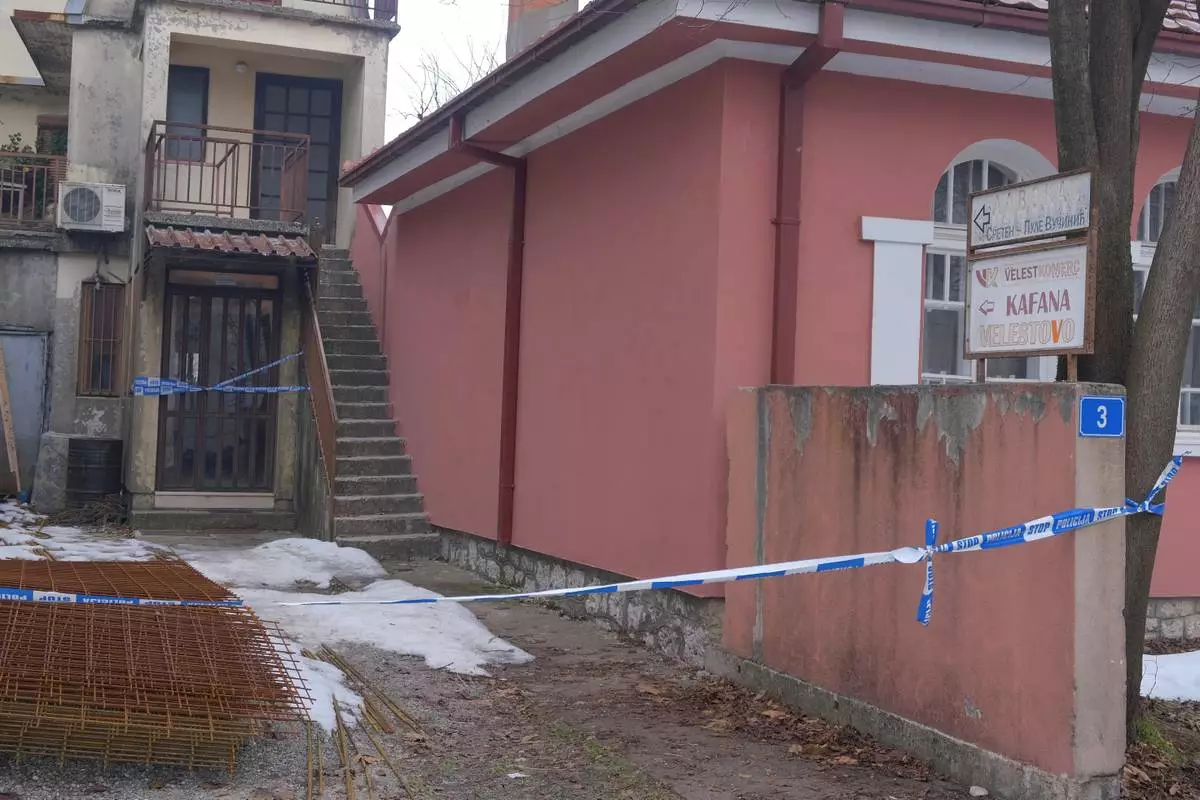
A view of a bar after a shooting incident, in Cetinje, 36 kilometers (22 miles) west of Podogrica, Montenegro, Thursday, Jan. 2, 2025. (AP Photo/Risto Bozovic)
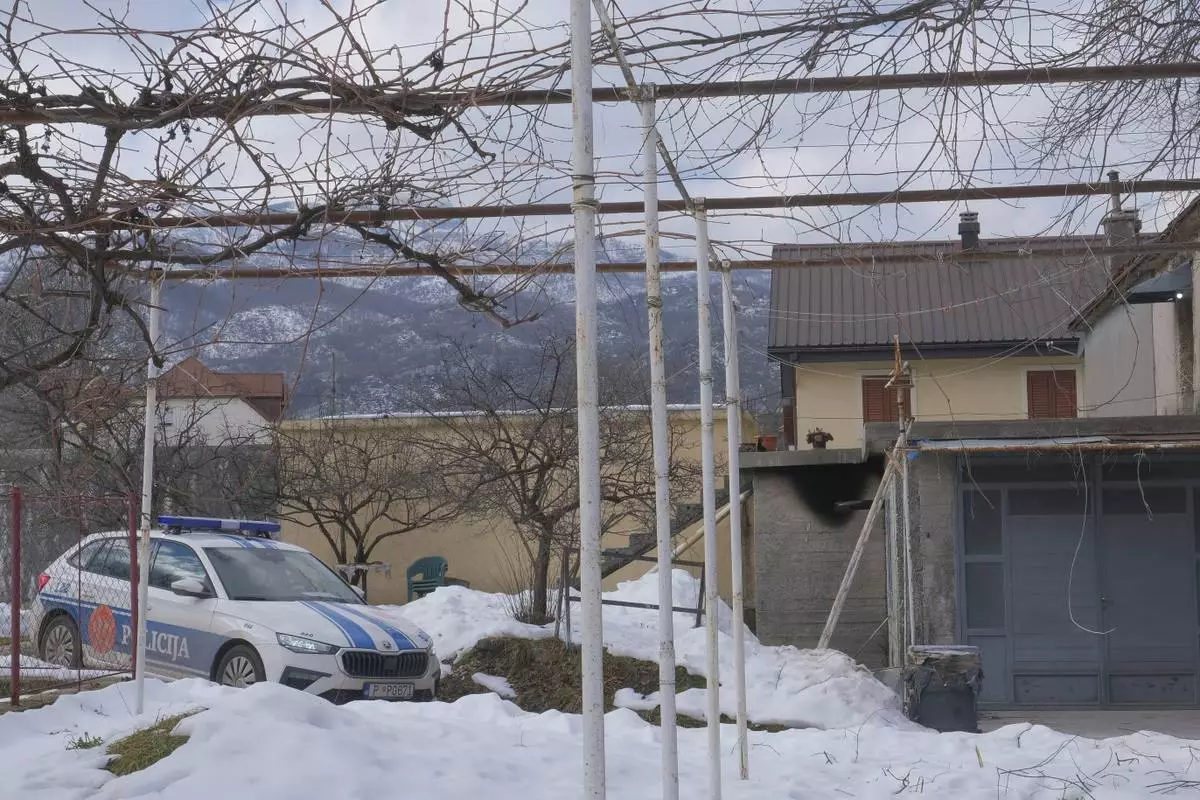
A view of a police vehicle at the home of a gunman after a shooting incident, in Cetinje, 36 kilometers (22 miles) west of Podogrica, Montenegro, Thursday, Jan. 2, 2025. (AP Photo/Risto Bozovic)
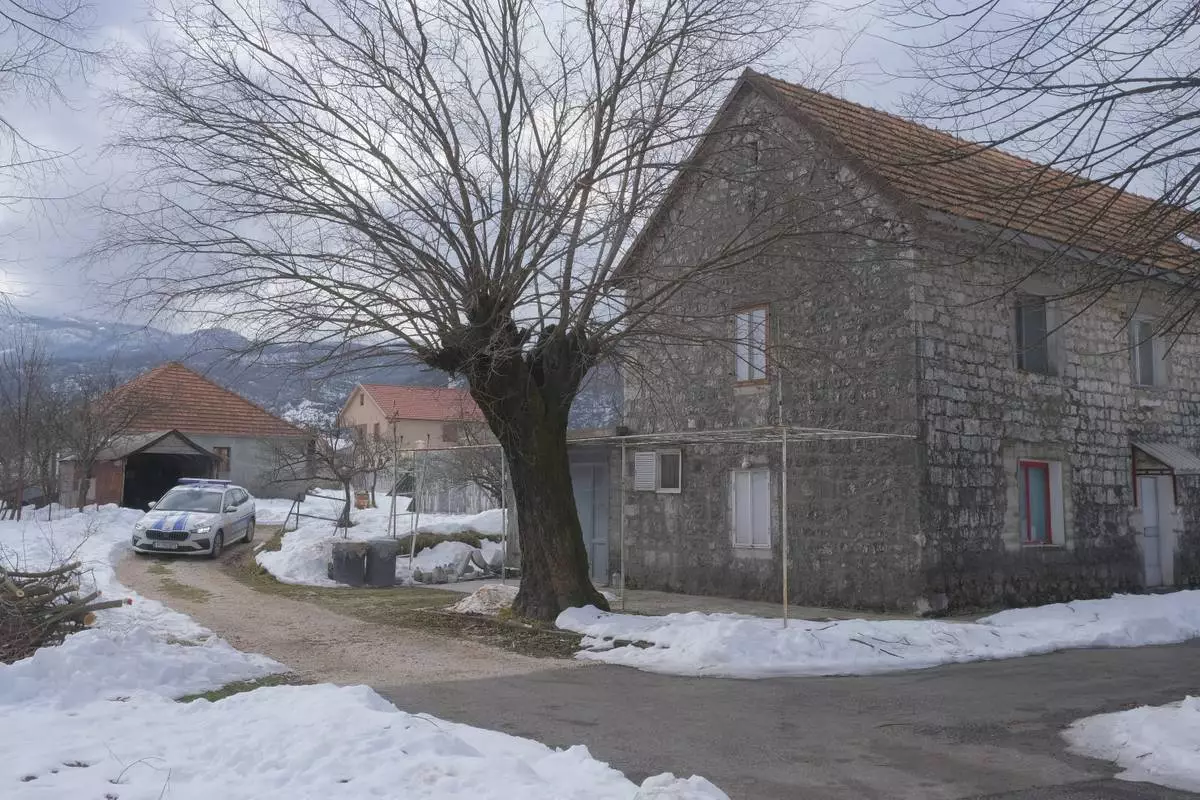
A view of a police vehicle at the home of a gunman after a shooting incident, in Cetinje, 36 kilometers (22 miles) west of Podogrica, Montenegro, Thursday, Jan. 2, 2025. (AP Photo/Risto Bozovic)

Police officers stand guard at the home of a gunman after a shooting incident, in Cetinje, 36 kilometers (22 miles) west of Podogrica, Montenegro, Thursday, Jan. 2, 2025. (AP Photo/Risto Bozovic)

Police officers stand guard at the home of a gunman after a shooting incident, in Cetinje, 36 kilometers (22 miles) west of Podogrica, Montenegro, Thursday, Jan. 2, 2025. (AP Photo/Risto Bozovic)

A police officer stands guard at the scene after a shooting incident at a bar, in Cetinje, 36 kilometers (22 miles) west of Podogrica, Montenegro, Thursday, Jan. 2, 2025. (AP Photo/Risto Bozovic)

Rescue workers work at the site of a shooting in Cetinje, 36 kilometers (22 miles) west of Podogrica, Montenegro, Wednesday, Jan 1, 2025. (AP Photo/Risto Bozovic)

Police investigators work at the site of a shooting in Cetinje, 36 kilometers (22 miles) west of Podogrica, Montenegro, Wednesday, Jan 1, 2025. (AP Photo/Risto Bozovic)

Police investigators work at the site of a shooting in Cetinje, 36 kilometers (22 miles) west of Podogrica, Montenegro, Wednesday, Jan 1, 2025. (AP Photo/Risto Bozovic)






